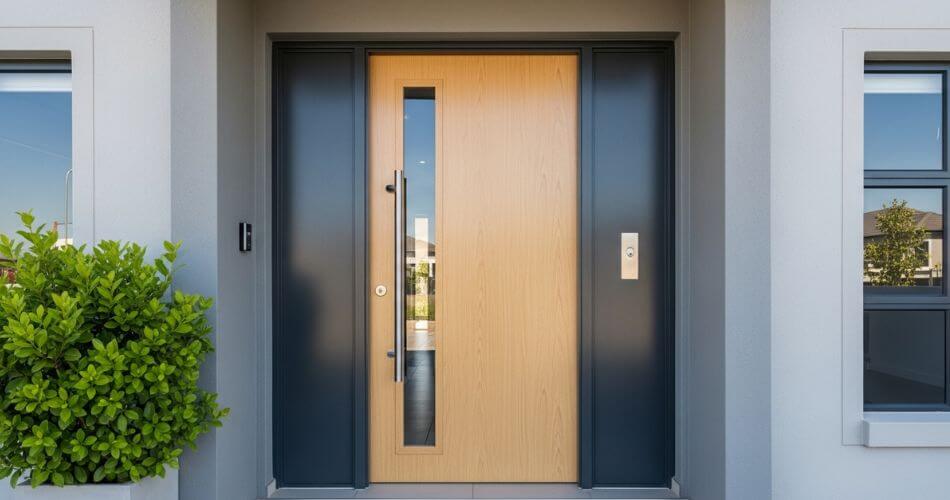Brackenfell Seniors Downsizing Financial Solutions
The Brackenfell Senior's Financial Playbook for Downsizing
Secure your finances, protect your equity, and navigate your move with confidence.

After decades of building a life in your Brackenfell home, the thought of selling can be overwhelming. The running costs of a larger property on a fixed income and the physical upkeep can become a heavy burden.
Yet, the process of downsizing feels complex, and the financial decisions are high-stakes. You are not alone in this.
For many, the path forward is unclear, filled with questions about property values, sales costs, and future security.
This guide is your strategic partner. It is designed to give you a clear, actionable plan, providing the Brackenfell seniors downsizing financial solutions you need to move from anxiety to confidence.
We will walk through this process step-by-step.
Part 1: Alleviating Immediate Financial Pressure

Before you can plan a move, you must get control of your current finances. The pressure of escalating municipal costs is the primary reason many seniors are forced to sell.
But there is support available that is often overlooked. Your first step is to reduce your immediate financial load.
The Most Critical Solution: The CoCT Pensioner Rates Rebate
This is the most direct and effective financial tool available to you, yet many eligible homeowners are not aware of it.
The City of Cape Town pensioner rates rebate is a substantial discount on your monthly property rates, based on your age (60+) and total gross monthly household income.
This relief is offered on a sliding scale. If your total household income is between R0 and R7,500 per month, you are eligible for a 100% rebate.
For those with a household income from R7,501 up to R22,000 per month, you can receive a rebate of between 10% and 90%. This can save you thousands of Rands a year, providing immediate breathing room.
It is important to understand that this rebate is not applied automatically. You must formally apply for it. You can download the application form from the City of Cape Town’s website or get one from a municipal Walk-in Centre.
You will need to submit it with a certified ID copy, proof of your income, and recent bank statements. This is the single most important administrative action you can take today to reduce financial stress.
Why Other State Grants (SASSA & FLISP) Likely Don't Apply
It is just as important to know what support doesn’t apply to you. Many clients ask about the SASSA Older Persons’ Grant.
This grant is subject to a strict “means test,” which includes an asset cap. For a single person, this asset limit is R1,227,600.
This creates a “Brackenfell homeowner trap.” The average value of a freestanding home in Brackenfell is well over R1.795 million.
Because you must declare the value of your property in the application, owning your home will almost certainly make you ineligible for the SASSA grant based on your assets.
Similarly, the “First Home Finance” program (once known as FLISP) is not relevant for downsizing. This subsidy is designed for first-time buyers.
A primary rule is that the applicant must “have never owned property before”. Your focus should be on the CoCT rebate, which is income-tested but not asset-tested.
With a plan to manage immediate costs, the next step is to fund the transition itself. This often means solving the “asset-rich, cash-poor” problem.
Part 2: Funding Pre-Sale Repairs When You Are "Asset-Rich, Cash-Poor"

A home that needs obvious repairs is a home that gives buyers leverage. Buyers will use a leaking gutter or a faulty plug to negotiate tens of thousands off your asking price.
To get the best possible price, you need to present a well-maintained, compliant home. But what if you don’t have the liquid cash for these repairs?
This is the central challenge in funding pre-sale home repairs for seniors, but there are sound financial strategies.
Option 1: Pension-Backed Home Improvement Loans
For homeowners in the 55 to 65 age bracket who are still employed or have a recently activated pension fund, this is a strong option.
The Pension Funds Act permits members to take a loan against their retirement savings for the specific purpose of home improvements.
This is not a general-purpose loan. It is a formal agreement between your pension fund, your employer, and a financial provider.
The benefit is that it uses your own savings as security. The limitation, however, is its timeframe. These loans must typically be repaid by your fund’s “normal retirement age” , making it a solution for those in the earlier stages of their senior years.
Option 2: Using Equity Release (Reverse Mortgage) as a Smart Bridge Loan
For those over 65, an equity release, often called a reverse mortgage, is another tool. A provider like Water Financial offers a product that allows you to borrow against your home’s equity with no monthly repayments.
The loan is settled when the property is eventually sold.
Let me be direct: this is a high-cost, high-risk product. With setup costs and compounding interest rates that can be around 14.5%, it is a poor choice for a long-term income solution.
However, it can be used as a strategic, short-term bridge loan. Instead of taking a large loan for income, you take a minimal loan (e.g., R50,000) for the sole purpose of funding critical pre-sale repairs.
You use that R50,000 to fix the electrical faults and waterproofing, which in turn unlocks a R100,000+ higher sale price. The conveyancer then settles the R50,000 loan (plus 6-12 months of interest) from the sale proceeds.
This strategy turns a high-risk product into a smart, short-term tool.
Mitigating Risk: How to Hire a Handyman Safely
Once you have the funds, you face another risk: exploitation. Northern Suburbs community forums are filled with warnings about “piss poor jobs” and scams from unreliable handyman services. This is especially dangerous for seniors.
The solution is to never use an unvetted provider. Instead, use platforms that provide accountability. The “Home+” app, which is backed by Santam, is a good example.
It requires all service providers to undergo criminal background checks and submit their qualifications. This de-risks the repair process by filtering the market for you.
Once your home is financially and physically ready, you must protect its value during the sale itself.
Part 3: Protecting Your Equity: A Strategy for Selling Your Home

When you sell, you are not just selling a property; you are selling your largest financial asset. Every Rand saved is a Rand earned for your retirement.
This part of the plan is about maximizing your final payout by focusing on smart, low-cost upgrades and aggressively managing your transaction costs.
Maximising Your Sale Price: Low-Cost, High-ROI Upgrades
Buyers are emotional. They often cannot see past small, cosmetic flaws. Do not waste money on a full R100,000 kitchen remodel; you will not get that money back.
The strategy is to focus on low-cost, high-impact fixes that remove a buyer’s reasons to negotiate down.
- Paint (Highest Impact): A fresh coat of neutral paint (whites, greys, beiges) is the most affordable way to make a home feel clean, large, and new.
- Kitchen: Do not remodel. Instead, paint the kitchen cupboards a modern, neutral colour and swap out old hardware for new, modern handles.
- Bathroom: Do not retile. Instead, re-grout the existing tiles and apply fresh, white caulk around the bath and basin to remove any “off-putting” brown tinges.
- Curb Appeal: Power wash the exterior walls and driveway. Tidy the garden and paint the front door a welcoming colour. This is the first impression, and it must be a good one.
How to Stop Transaction Costs from Eating Your Profit
This is a central part of any downsizing checklist for seniors in Cape Town. Agent commission is the single largest cost of selling. The standard rate in South Africa is between 5% and 7.5% (plus VAT).
What many homeowners do not realize is that this fee is fully negotiable and is not regulated by law. The savings are substantial.
On an average Brackenfell home of R1.8 million, negotiating a commission from 7.5% down to 5% will save you R51,750 in cash.
You can also achieve cost certainty on your legal fees. Instead of a variable rate, opt for a fixed-fee conveyancer. Some Cape Town firms offer all-inclusive packages (e.g., R30,000 for properties up to R2 million), which prevents surprise “extra” fees for postage or FICA checks.
The Cape Town Compliance Gauntlet: Budgeting for 5 Certificates
This is a financial hurdle specific to our city. Before a transfer can be registered, the seller must, at their own expense, provide a series of mandatory compliance certificates for property sale in Cape Town.
The problem is not just the inspection fee; it is the unknown cost of repairs if your home fails. You must budget for potential failures in five separate certificates :
- Electrical Compliance Certificate: Checks wiring, plugs, and the earth leakage.
- Gas Compliance Certificate: Required if you have any gas appliances (like a hob).
- Electric Fence Certificate: A separate certificate if you have one.
- Beetle Clearance Certificate: A common requirement in coastal provinces.
- Water Installation Certificate: This is a specific City of Cape Town by-law. It checks for leaks, ensures toilets are not high-flow, and confirms that showerheads are water-saving. A leaking toilet or old showerhead will cause you to fail, triggering unplanned repair costs.
Selling well provides the capital. The next challenge is investing that capital wisely in your new home.
Part 4: The Next Chapter: Finding and Funding Your New Home

You have successfully sold your home and protected your equity. Now, you face two critical decisions: where will you live, and how will you buy?
This is not just about finding a smaller space; it is about finding a sustainable, safe, and financially sound home for the next phase of your life.
Local Affordable & Subsidised Housing Options
For seniors with capital, the market offers many retirement villages. But for those with less capital from their sale, rental is a key option. “Social Housing” is a primary solution for households earning between R1,850 and R22,000 per month.
Locally, the City of Cape Town manages its own senior citizen complexes. Rusoord Cottages, located on Bertrum Street in Brackenfell, is a direct, local, and subsidized rental option.
For those looking to purchase, you must be aware of the “downsize premium.” A standard two-bedroom apartment in Brackenfell may cost R1.2 million, but a two-bedroom unit in a local retirement village (like Paradys Park or Othello Village) can cost R1.5 million or more.
That R300,000+ premium pays for security, frail-care facilities, and communal areas. You must be sure that your sale proceeds can cover both this premium and your future living costs.
The Most Important Financial Decision: Life Right vs. Sectional Title
This is the most important financial decision you will make when buying into a retirement village. The debate over Life Rights vs Sectional Title in South Africa is about one thing: risk versus reward.
Sectional Title (Investment): This is what you are used to. You have full, registered ownership of the unit. You get 100% of the capital growth when you (or your heirs) sell it.
However, you are also liable for all costs: transfer duty, maintenance, and, most importantly, special levies. If the complex needs a new R5 million roof, you will be liable for your share, which could be a sudden, unplanned R100,000 bill.
Life Right (Insurance): This model is different. You purchase a “guaranteed right of occupation” for your life. You do not own the unit.
Because there is no property transfer, you pay no VAT, transfer duty, or capital gains tax. The developer remains the legal owner and is responsible for all external maintenance and, critically, all special levies.
Here is the trade-off: When the Life Right terminates (upon your death or move), your estate typically receives only the original purchase price back, with no capital gain. A Life Right is a form of “longevity insurance.”
You surrender the future capital gain for your heirs in exchange for total cost certainty for the rest of your life. For a senior on a fixed income, this “no special levies” guarantee is often the more logical and secure financial choice.
A 'Universal Design' Checklist for Your New Home
Your new home must be future-proof. Downsizing from a big house only to move into a second-floor apartment with no lift is a costly mistake.
You must evaluate every potential property not for your needs today, but for your needs in 10 years. This is a financial checklist to prevent another forced, expensive move.
- Entry: Is there a no-step entry to the home?
- Doorways: Are all doorways at least 820mm wide? Standard 770mm doors are too narrow for a wheelchair.
- Bathrooms: Is there a curbless, walk-in shower?
- Handles: Does the home use lever handles on doors instead of round knobs? Levers are far easier for arthritic hands to operate.
Securing the right property is the financial goal. We must also manage the personal side of the move.
Part 5: Managing the Move: Logistics and Emotional Support

The process of leaving a home of 30 or 40 years is not just a financial transaction. It is physically exhausting and emotionally painful.
You are not just sorting boxes; you are sorting a lifetime of memories. This final step is about managing that transition with support, not just strength.
Hiring Professional Downsizing & Decluttering Services
For many seniors, the physical labour of packing and sorting is a major health risk. This is why a professional downsizing service should be viewed as an essential health intervention, not a luxury.
These are not just movers. Cape Town-based services like Absolutely Organised, Clutterfree, and So Sorted manage the entire process.
They provide the objective, neutral support needed to help you “let go” of items. They will sort paperwork, pack, manage the physical move, unpack at the new home, and even arrange for the sale or donation of unwanted items.
As one client testimonial stated, “You take all the trauma out of moving”.
Free Counselling and Support for a Difficult Transition
The grief is real. Leaving the family home can feel like a loss, and it is a change that must be acknowledged. You do not have to go through this alone.
There are excellent, free resources available. The South African Depression and Anxiety Group (SADAG) is the primary resource.
They offer 24-hour toll-free helplines, including a suicide crisis line (0800 567 567), and run free support groups for grief and trauma. LifeLine Western Cape also provides free counselling services to help people navigate all of life’s transitions.
Selling your home is a significant life event, but it does not have to be a crisis. You are the steward of your asset’s value, and you are in control of this process.
By applying for the rates rebate, funding repairs smartly, negotiating your sale, and choosing your new home based on future security, you are not just downsizing—you are securing your future.
This guide provides the Brackenfell seniors downsizing financial solutions to make that happen. But a plan is only as good as its execution.
If you are ready to turn this strategy into action, the next step is to get a confidential, no-obligation valuation of your property. Let’s sit down and build your personal plan together.
About the Author
Andre Swart is a respected leader in Brackenfell real estate with over 20 years of results-driven experience. Through his platform, “Andre Swart Inspires,” he moves beyond simple property sales to share the proven mindset, strategies, and habits that build lasting success.
Grounded in integrity, Andre’s mission is to mentor the next generation of top agents and provide homeowners with the trusted guidance they deserve.
